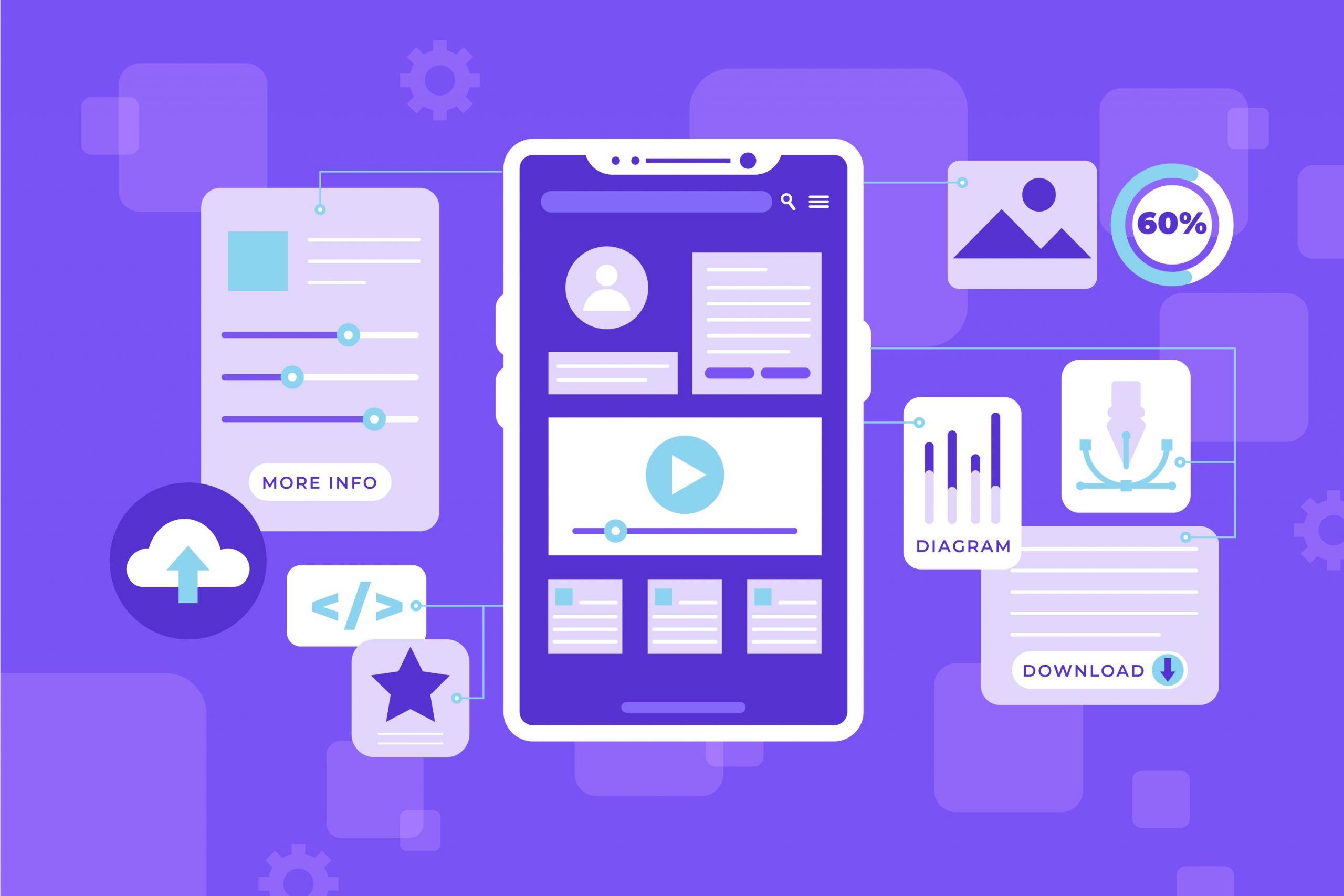Ionic for Android: Cross-Platform Mobile App Development
Introduction – Ionic for Android
Ionic, powered by web technologies such as HTML, CSS, and JavaScript, has gained significant popularity as a framework for developing cross-platform mobile applications. With its focus on simplicity, performance, and UI consistency, Ionic allows developers to create high-quality mobile apps that run smoothly on multiple platforms.
Ionic is an open-source framework that enables developers to build cross-platform mobile applications using web technologies. It combines HTML, CSS, and JavaScript to create native-like mobile app experiences. Ionic offers a wide range of UI components, pre-designed themes, and tools for building mobile apps that can run on iOS, Android, and web platforms.
Key Features of Ionic for Android
- Cross-Platform Compatibility: One of Ionic’s primary advantages is its ability to build apps that work seamlessly on multiple platforms, including Android. Developers can write code once and deploy it on iOS, Android, and the web, reducing development time and effort.
- UI Components and Themes: Ionic provides a comprehensive library of UI components and pre-designed themes, making it easy to create visually appealing and consistent app interfaces across different platforms. Developers can customize these components to match their app’s branding and design requirements.
- Cordova Plugins Integration: Ionic integrates with Cordova, allowing developers to access a wide range of native device features and functionalities through Cordova plugins. This enables the development of apps that leverage Android-specific capabilities like camera, geolocation, contacts, and more.
- Angular Integration: Ionic is built on top of Angular, a popular JavaScript framework for building web applications. The integration with Angular provides a structured development environment, powerful data binding, and the ability to create complex app logic using Angular’s features.
- Capacitor: Capacitor is a native runtime that powers Ionic apps and provides access to native APIs. It allows developers to build web-based UIs with Ionic and then deploy them as native Android apps. Capacitor supports advanced features like push notifications, background tasks, and app indexing.
- Live Reload and Dev Server: Ionic offers a live reload feature that allows developers to see instant changes in the app as they modify the code. Additionally, the built-in dev server enables developers to test their app on multiple devices simultaneously during the development process.
Advantages of Ionic for Android Development
- Code Reusability: With Ionic, developers can write code once and deploy it on multiple platforms, including Android. This eliminates the need to maintain separate codebases for different platforms, saving time and effort while maintaining consistency across platforms.
- Native-like UI: Ionic’s pre-designed UI components and themes provide a native-like look and feel on Android devices. This helps in creating consistent and visually appealing app interfaces that match the design guidelines of Android.
- Web Technologies: By leveraging web technologies like HTML, CSS, and JavaScript, Ionic allows developers to leverage their existing web development skills and knowledge. This makes it easier for web developers to transition into Android app development.
- Rapid Prototyping: Ionic’s simplicity and easy-to-use tools enable rapid prototyping. Developers can quickly build functional prototypes, gather user feedback, and iterate on app features, speeding up the development cycle.
- Large Community and Ecosystem: Ionic has a large and active community of developers, providing a wealth of resources, tutorials, plugins, and libraries. This strong community support ensures developers have access to a wide range of solutions and assistance.
Use Cases for Ionic Android Development
- Minimum Viable Products (MVPs): Ionic’s rapid development capabilities and cross-platform compatibility make it an excellent choice for building Minimum Viable Products (MVPs) and prototypes. It allows developers to quickly validate ideas and gather user feedback before investing in platform-specific development.
- Multi-Platform Apps: Ionic’s ability to create apps that run on iOS, Android, and the web with a single codebase makes it ideal for projects that target a broad audience across different platforms. This reduces time-to-market and development costs.
- Hybrid Apps: Ionic is well-suited for building hybrid apps that combine native components with web views. This allows developers to leverage the benefits of Android-specific features while utilizing web technologies for the app’s UI and logic.
- Internal Business Apps: Ionic is a popular choice for developing internal business applications that need to run on multiple platforms. It allows businesses to streamline development efforts and maintain a consistent user experience across various devices.
Conclusion
Ionic empowers developers to create cross-platform mobile applications using web technologies, delivering native-like experiences on Android. With its extensive UI components, pre-designed themes, and seamless integration with Angular and Cordova, Ionic provides a powerful and efficient development framework.
By leveraging Ionic’s advantages of code reusability, native-like UI, and a large community, developers can build high-quality apps with ease, reaching a broader audience across different devices and operating systems.
Refer Ionic for Android


 share
share share
share